 Music and Dance Vocabulary in French
Music and Dance Vocabulary in French
Explore French vocabulary related to music and dance. Learn different words, phrases and expressions within this category.

bande
In French, 'bande' is a versatile word that is often used. It translates to 'band' in English. It can refer to a group of individuals who share a common interest or who are involved together in the same activity. This is similar to how 'band' is used in English. However, depending on context, it can also mean stripe or strip, specifically for physical objects.
Example sentences with bande →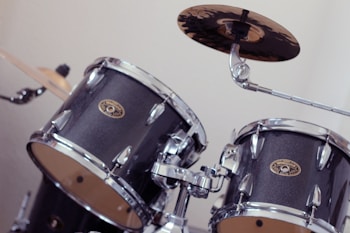
batterie
The French word 'batterie' translates directly to 'drums' in English. It is used to describe a collection of drums, cymbals, and sometimes other percussion instruments, such as cowbells, wood blocks, triangles, chimes, or tambourines, arranged for convenient playing by a single person.
Example sentences with batterie →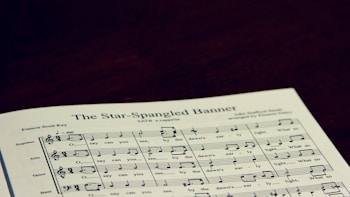
chanson
The French word for song is 'chanson'. It is used in the same way as in English, to describe a short piece of music with words. It could be a part of a musical, movie, or sung by a choir. It's also used colloquially to describe popular music tracks.
Example sentences with chanson →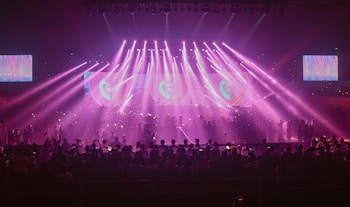
chanter
The French word 'chanter' is the equivalent of 'sing' in English. Just like 'sing', 'chanter' can be used in various contexts such as singing a song ('chanter une chanson') or singing in the shower ('chanter sous la douche'). The conjugation changes with the subject, for example 'Je chante' is 'I sing' and 'Nous chantons' is 'We sing'.
Example sentences with chanter →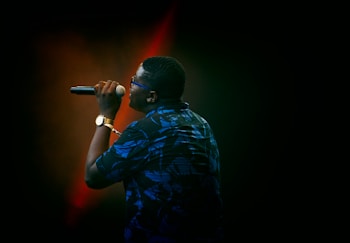
chanteur
The word 'chanteur' is used to refer to a person who sings. It is used in the same contexts as in English, for example to talk about a profession (s/he is a singer = il/elle est chanteur/chanteuse) or an activity (s/he is singing = il/elle chante). Note that 'chanteuse' is used for a female singer.
Example sentences with chanteur →
chorus
In French, the word 'chorus' is used to refer to a group of singers or dancers who perform together, often in a musical or theatrical production. It can also refer to the refrain of a song, which is repeated after each verse. The word is used in the same way as in English.
Example sentences with chorus →
concert
The French word for concert is 'concert'. It is used in a very similar way as in English. For example, attendees to a music event would go to a 'concert'. Unlike some French words, it does not alter spelling or pronunciation from the English counterpart. It is used in both formal and informal conversation.
Example sentences with concert →
corde
The French word for rope is 'corde'. It is used in a similar way to the English word, for example, 'J'ai besoin d'une corde pour attacher le paquet.' which means 'I need a rope to tie the package.'. It can also be used in a more abstract sense, such as 'La corde raide' which means 'tightrope'.
Example sentences with corde →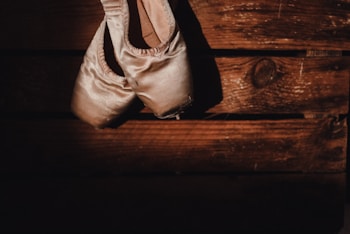
danse
The French word for dance is 'danse'. It is used in the same way as in English, to describe the act of moving one's body rhythmically, usually to music. For example, one might say 'Je veux danser' which means 'I want to dance'.
Example sentences with danse →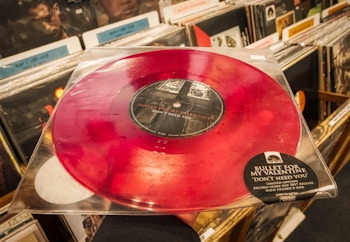
enregistrement
In French, the word 'enregistrement' is used similar to the English 'record'. It can mean a document or notation of data saved for referencing later, or the act of saving such data. It is also used in the context of audio or video recording. However, like in English, it's not used to describe a sports achievement or a best-ever performance; that would be 'record' in French too.
Example sentences with enregistrement →
flûte
The French word 'flûte' is used similarly to the English word 'flute'. It refers to a high-pitched woodwind instrument, typically made of metal and played by blowing across a hole. It is also used to refer to a long, narrow, French bread.
Example sentences with flûte →
guitare
The word 'guitare' is a noun in French which represents a commonly used musical instrument, just like in English. It is used in the same context where you speak about guitar in English. For instance, 'Je joue de la guitare' translates to 'I play the guitar'.
Example sentences with guitare →
musique
The French word for music is 'musique'. It is used in the same context as in English, referring to the art form and cultural activity whose medium is sound organized in time. For example, you can say 'J'aime la musique' which means 'I love music'.
Example sentences with musique →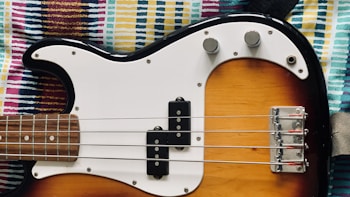
mélodie
The French word for melody is 'mélodie'. It is used in the same context as in English - to describe a sequence of single notes that is musically satisfying. You can use it to describe the tune of a song or piece of music in French.
Example sentences with mélodie →
note
In French, 'note' has multiple meanings. It can refer to a 'note' as in a short written record, similar to its meaning in English. However, it can also refer to a 'grade' or 'mark' in an academic context, meaning the score a student receives on an assignment or exam. Therefore, it is important to consider the context when using this word.
Example sentences with note →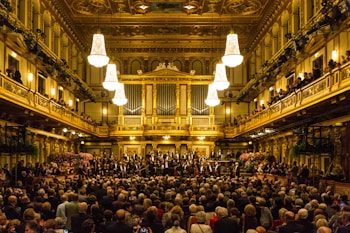
orchestre
The French word 'orchestre' is used similar to English 'orchestra'. It refers to a large group of musicians who play together on various instruments, typically including strings, woodwind, brass, and percussion. Like its English counterpart, 'orchestre' can also be used to refer to the place where those musicians sit in a theatre.
Example sentences with orchestre →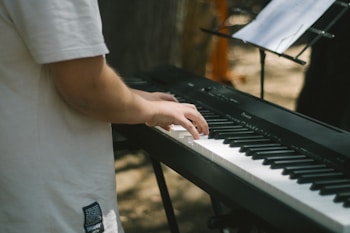
piano
In both English and French, 'piano' refers to the large musical instrument with a row of black and white keys. It is used in the same context in both languages, and can refer to the act of playing, or the instrument itself. For instance, 'I play the piano' translates in French as 'Je joue du piano'.
Example sentences with piano →
poupee
In French, the word 'poupee' is often used to refer to a 'doll'. It is a feminine noun, and its plural form is 'poupees'. The word 'pop' in English can be used in various contexts, such as a sound, a genre of music, or a colloquial term for 'father'. However, in the context of translating 'pop' to French, 'poupee' is not a direct translation. The word 'pop' in the sense of 'pop music' is translated as 'musique pop' in French.
Example sentences with poupee →
rythme
The French word 'rythme' directly translates to 'rhythm' in English. It is typically used in the same contexts, relating to music, patterns, and regular recurring activities. For example, you may use 'rythme' to discuss the rhythm of a song ('le rythme de la chanson') or the rhythm of life ('le rythme de la vie'). Just like in English, it can also be metaphorically used in French to depict any sort of pattern or routine.
Example sentences with rythme →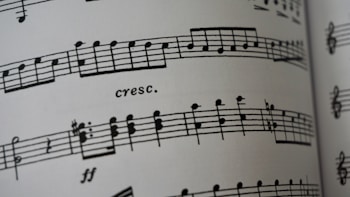
score
In French, the word 'score' is used to refer to the score or tally of points in a game or competition, similar to its usage in English. It is a masculine noun and is pronounced as 'skor'. For example, 'Quel est le score?' means 'What is the score?' in English.
Example sentences with score →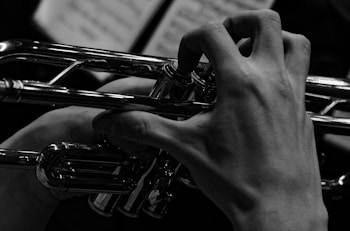
trompette
The French word for 'trumpet' is 'trompette'. It is typically used in the same context as in English - to refer to the high-pitched brass instrument. Just like in English, it can also be used metaphorically in French to refer to a loud and striking voice or sound. In both languages, it's also mentioned in idiomatic expressions.
Example sentences with trompette →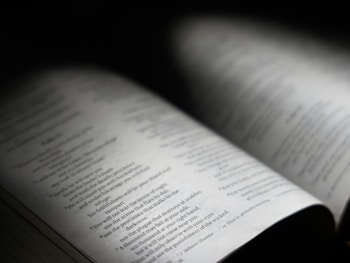
verset
The French word 'verset' is used to denote a verse in a song, poem, or a verse of the Bible. It's important to note that a verset is usually part of a larger text or composition.
Example sentences with verset →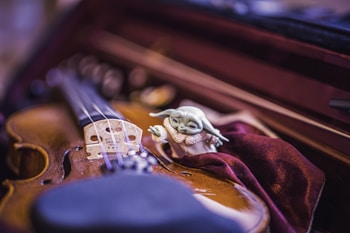
violon
The French word 'violon' is used exactly as the English word 'violin', to identify a musical instrument from the strings family. It can be used in any context where you're talking about music, orchestras, or instruments in general.
Example sentences with violon →